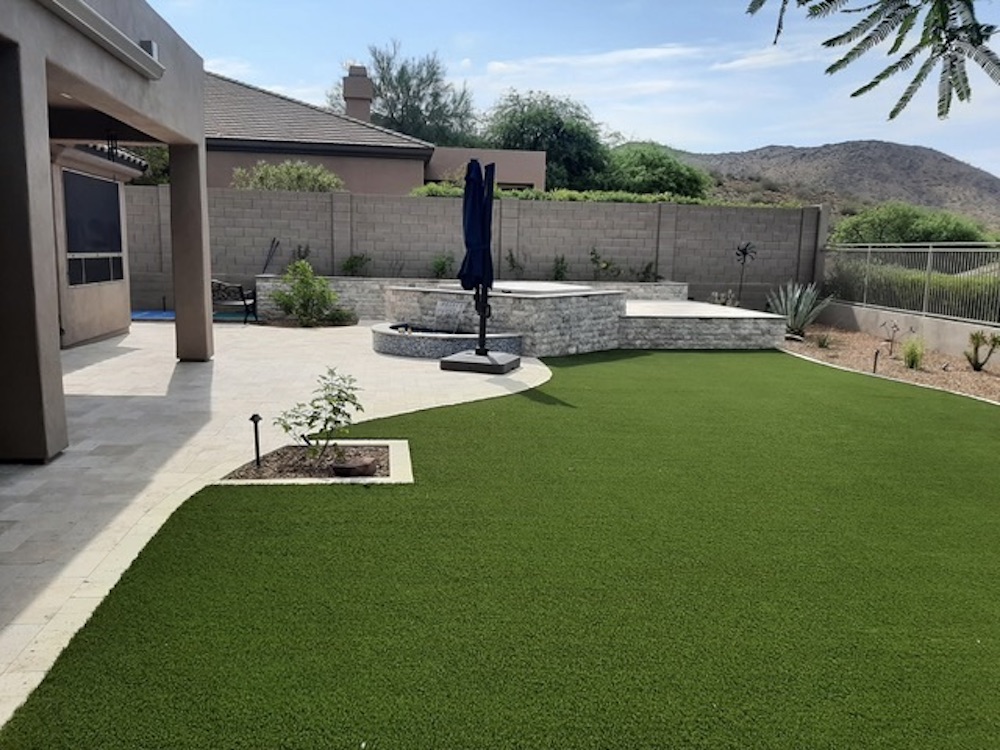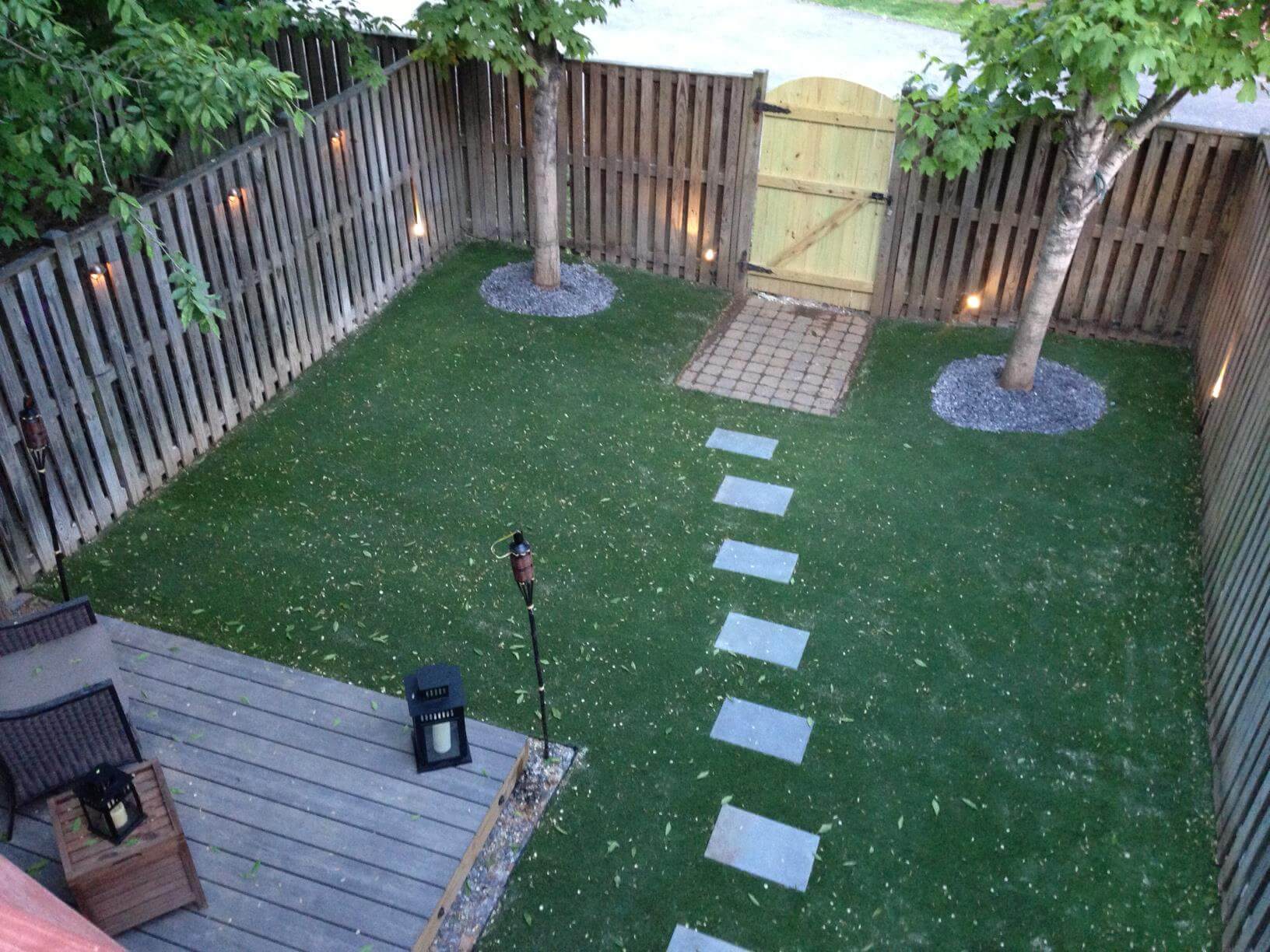Upgrade Your Outdoor Area with Backyard Artificial Grass Canoga Park
Upgrade Your Outdoor Area with Backyard Artificial Grass Canoga Park
Blog Article
Top Reasons to Take Into Consideration Artificial Lawn for a Low-Maintenance and rich Yard
As house owners increasingly look for sustainable solutions for exterior spaces, artificial yard provides an appealing option to typical yards. The advantages extend beyond mere visual appeals and sustainability; exploring the multifaceted implications of synthetic grass reveals a detailed method to yard monitoring that merits much deeper factor to consider.
Year-Round Plant
Among one of the most significant benefits of man-made yard is its capability to give year-round plant, no matter environment problems. Property owners usually deal with obstacles in keeping a vibrant lawn because of seasonal modifications, dry spells, or hefty rainfall. Fabricated turf eliminates these problems, making sure a consistently lush appearance throughout the year.
This artificial alternative is engineered to withstand varied weather scenarios, from sweltering summertime heat to cold winter season temperatures. Unlike all-natural yard, which might brown or end up being patchy during extreme conditions, synthetic grass maintains its vibrant shade and structure, improving the aesthetic charm of any type of landscape.
Additionally, man-made turf is resistant to insects and conditions that generally affect all-natural yards. This strength adds to its enduring charm, as there is no demand for chemical treatments or plant foods that can be dangerous to the setting. Moreover, property owners can delight in the aesthetic benefits of a properly maintained lawn without the cyclical challenges presented by natural grass care (artificial grass canoga park).
Lowered Upkeep Initiatives
Man-made turf substantially minimizes upkeep efforts, allowing property owners to enjoy an excellent grass without the time-consuming jobs related to all-natural turf care. One of one of the most significant benefits of synthetic grass is the removal of routine mowing. With no requirement for a lawnmower, homeowners conserve both time and the expense of maintenance connected with this tools.

Cleaning fabricated grass is straightforward; a straightforward rinse with a tube or the periodic cleaning to remove debris is typically adequate - artificial grass installation. This simplicity of treatment enables house owners to spend even more time appreciating their outside areas instead than struggling over them. In summary, the lowered upkeep initiatives associated with artificial turf make it an appealing option for those seeking a beautiful, easy yard
Water Preservation Advantages
The considerable decrease in maintenance initiatives connected with fabricated lawn includes water conservation, making it an eco-friendly choice for property owners. Conventional yards call for substantial quantities of water to remain vibrant and lavish, usually bring about too much water use, especially in arid areas. In comparison, fabricated yard gets rid of the requirement for normal watering, drastically reducing the total water usage in your lawn.
By opting for artificial grass, home owners can preserve hundreds of gallons of water annually. This change not only advantages specific homes yet additionally adds to broader environmental initiatives focused on decreasing water waste. In areas experiencing water scarcity, the fostering of man-made yard can play a substantial function in minimizing the effects of dry spell and making sure that useful water home resources are made use of much more effectively.
Moreover, the setup of synthetic turf can aid reduced local water demand, benefiting the area overall. With expanding understanding of ecological concerns, picking man-made turf acts as a proactive step in the direction of sustainable landscaping, assisting to preserve all-natural water resources while maintaining an aesthetically pleasing outside room (turf installation). In recap, synthetic grass provides a compelling service for water conservation, lining up environmental responsibility with contemporary landscape design demands

Insect and Allergy Reduction
A considerable advantage of installing artificial lawn is its ability to decrease insects and irritants in outside areas. Traditional grass yards frequently serve as breeding premises for insects such as insects, ticks, and ants, which can produce discomfort and health and wellness risks for pet dogs and households. In comparison, synthetic lawn gets rid of the natural material that attracts these insects, consequently dramatically decreasing their populations in your yard.
In addition, natural turf can nurture mold and mildew, pollen, and other allergens, which can activate allergic reactions and respiratory problems for sensitive individuals. Synthetic turf supplies a cleaner atmosphere, lowering the capacity for allergenic responses. Unlike natural lawn, fabricated grass does not generate pollen, making it an exceptional alternative for allergic reaction victims seeking to enjoy their exterior areas without the danger of flare-ups.
Furthermore, the lack of dirt in synthetic grass suggests there is less dirt and dust, additional minimizing airborne allergens. This low-maintenance alternative not only improves the visual charm of your backyard yet additionally advertises a much healthier exterior environment, permitting families to enjoy their yards without the important source constant worry of insects and allergens. Hence, fabricated grass is a tactical selection for those prioritizing convenience and wellness in their outdoor living spaces.
Long-Term Price Savings
Investing in synthetic lawn can lead to considerable long-term price savings for property owners. Synthetic yard removes the demand for normal grass maintenance costs, such as mowing, feeding, and watering.
Moreover, the long life of synthetic turf further enhances its cost-effectiveness. Most premium artificial lawn products can last 15 to 25 years with marginal maintenance, reducing the demand Go Here for replacement or substantial fixings. In contrast, natural turf may need regular reseeding and normal care, which can rapidly accumulate in expenses.
Energy cost savings are another crucial variable. Home owners can expect to see reduced water expenses, as synthetic lawn does not require watering. In addition, the decrease in yard care solutions can free up valuable time and sources, allowing home owners to assign their spending plans elsewhere.
Final Thought
In recap, fabricated lawn presents countless advantages for home owners looking for a vibrant and low-maintenance landscape. Its capacity to supply year-round greenery, paired with reduced maintenance efforts and substantial water conservation, makes it an appealing selection. Additionally, the reduction of allergens and bugs adds to a healthier outside atmosphere. Inevitably, the lasting cost savings connected with synthetic grass solidify its condition as a sustainable and practical solution for boosting exterior rooms.
Synthetic lawn substantially minimizes upkeep initiatives, allowing home owners to appreciate a beautiful yard without the taxing tasks connected with all-natural lawn treatment.The substantial reduction in maintenance efforts connected with synthetic turf prolongs to water conservation, making it an ecologically friendly option for property owners. In comparison, fabricated yard gets rid of the requirement for normal watering, drastically minimizing the overall water usage in your lawn.
In locations experiencing water shortage, the adoption of synthetic grass can play a considerable duty in alleviating the effects of drought and ensuring that valuable water resources are used more efficiently.
With growing awareness of ecological problems, choosing synthetic lawn serves as a positive action in the direction of lasting landscape design, aiding to protect natural water sources while maintaining an aesthetically pleasing outdoor space.
Report this page